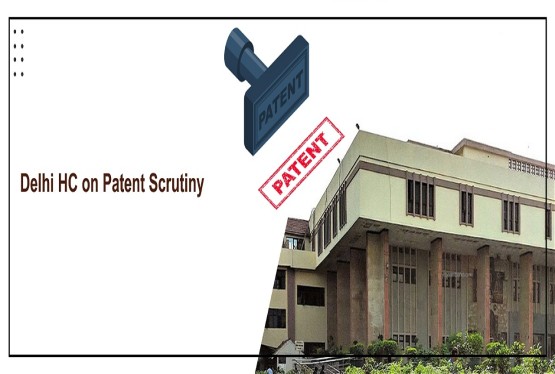The rise of e-commerce has transformed how products and services are bought and sold. However, alongside its convenience and global reach, e-commerce has also given rise to a darker trend—intellectual property (IP) theft and counterfeiting. Brands frequently face the trademarks infringement, copyright infringement, and unauthorized sale of fake goods. To counter this, multiple legal frameworks have evolved in India and globally to protect IP rights on online platforms.
What Is IP Theft and Counterfeiting in E-Commerce?
IP theft refers to the unauthorized use of trademark registration, copyright registration, designs, or patents owned by another party. Counterfeiting, a form of IP infringement, involves the production and sale of imitation goods that bear fake trademarks or branding, misleading consumers into believing they are purchasing genuine products.
In the context of e-commerce, such violations include:
-
Selling counterfeit branded products online.
-
Listing pirated copyrighted content.
-
Copying product designs or packaging.
-
Using logos or trademarks without authorization.
Applicable IP Laws in India for E-Commerce Violations
Several Indian laws deal with intellectual property rights and address online infringement:
1. The Trade Marks Act, 1999
Protects registered trademarks from misuse or deceptive similarity. Online sale of counterfeit goods using fake trademarks can attract:
-
Civil remedies: Injunctions, damages, and account of profits.
-
Criminal penalties: Fines and imprisonment under Sections 103–105.
2. The Copyright Act, 1957
Deals with piracy and copyright infringement. Copying and listing unauthorized content like e-books, music, or software online is punishable under Sections 63–65.
3. The Information Technology Act, 2000
While primarily a cyber law, it provides legal recognition to digital contracts and data. Section 79 gives intermediaries (like e-commerce platforms) conditional immunity for third-party listings, provided they act on takedown notices.
4. The Designs Act, 2000
Prevents unauthorized copying or imitation of registered product designs—common in fashion, electronics, and home décor sectors sold online.
Civil and Criminal Legal Remedies for IP Owners
Civil Remedies
IP owners may approach a civil court or the Commercial Court to seek:
-
Permanent or interim injunctions to stop further sales.
-
Anton Piller orders to seize counterfeit goods from warehouses.
-
Damages or account of profits earned by the infringer.
Criminal Remedies
Police complaints can be filed under relevant IP statutes. Upon conviction, penalties may include:
-
Up to three years of imprisonment.
-
Fines ranging from Rs.50,000 to Rs.2 lakh or more.
-
Seizure and destruction of counterfeit goods.
Legal Role of E-Commerce Platforms
Most e-commerce platforms in India, such as Amazon, Flipkart, and Snapdeal, act as intermediaries under the IT Act, 2000. To reduce their liability, they implement:
-
Notice and takedown policies.
-
IP protection programs like Amazon Brand Registry or Flipkart IP Protection.
-
Seller verification mechanisms to prevent counterfeit listings.
However, platforms may still be held liable if:
-
They knowingly allow the sale of fake goods.
-
Fail to act upon complaints by IP holders.
-
Do not have proper due diligence procedures.
A landmark case in this context is:
Christian Louboutin SAS v. Nakul Bajaj & Ors. [2018 SCC OnLine Del 13032]
Facts: Christian Louboutin sued an online seller operating on "www.darveys.com" for selling counterfeit footwear.
Judgment: The Delhi High Court held that the intermediary was liable as it had a role beyond just providing a marketplace (including promotion, packaging, and selecting sellers), and was aware of counterfeit listings.
Significance: Platforms cannot claim intermediary immunity if they are actively involved in the sale process.
Preventive Measures for IP Owners
To prevent IP theft on e-commerce platforms, stakeholder should:
-
Register trademarks, copyrights, and designs early.
-
Use online brand protection tools.
-
Monitor listings regularly and issue cease and desist notices.
-
Join platform-based IP protection programs.
-
Leverage digital watermarking and anti-counterfeit labels.
Role of the Government and Policy Measures
The Government of India has introduced several initiatives:
-
National IPR Policy (2016): Focuses on awareness and enforcement of IP rights.
-
Startup India DPIIT Recognition: Provides fast-track IP filing and dispute redressal support.
-
GeM Portal Guidelines: Mandate sellers to certify IP ownership for listed products.
Conclusion
IP theft and counterfeiting in e-commerce have serious consequences—not only for brand owners but also for consumer trust and the economy. While laws exist, their effective implementation is crucial. IP owners must proactively safeguard their rights through legal action and collaboration with e-commerce platforms. E-commerce companies, in turn, must strengthen their IP enforcement systems and ensure transparent grievance redressal. Together, strong legal responses and vigilant practices can curb the menace of counterfeiting in the digital marketplace.
FAQs
Q1. Can I sue an e-commerce platform for IP infringement?
Ans. Yes, if the platform has knowledge of the infringing activity or plays an active role in selling counterfeit goods.
Q2. What legal action can be taken against sellers of counterfeit goods?
Ans. Civil lawsuits, criminal complaints, and injunctions can be filed under the Trade Marks Act, Copyright Act, or Designs Act.
Q3. What is an intermediary under the IT Act, 2000?
Ans. An intermediary is a digital platform that hosts user content. They are not liable for third-party content if they follow due diligence and respond to takedown notices.
Q4. Is it necessary to register my trademark before taking action?
Ans. While unregistered trademarks can still be protected under common law, a registered trademark offers stronger and faster legal remedies.
Q5. What should be included in a takedown notice to an e-commerce site?
Ans. Details of the IP right, evidence of ownership, infringing URLs, and a request for removal under applicable IP laws.






























_(b)_of_the_Trademark_Act,_1999_(1)_crop10_thumb.jpg)



_crop10_thumb.jpg)




























_crop10_thumb.jpg)
_crop10_thumb.jpg)






_crop10_thumb.jpg)








_crop10_thumb.jpg)



_crop10_thumb.jpg)





























_crop10_thumb.jpg)

















_crop10_thumb.jpg)






_crop10_thumb.jpg)












































































































































_crop10_thumb.jpg)




































_crop10_thumb.jpg)












_crop10_thumb.jpg)














































_crop10_thumb.jpg)




































































































